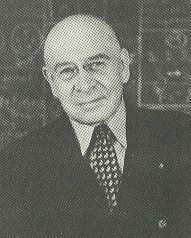
Alfred Korzybski (1879-1950)
On July 3, 1879, Polish-American independent scholar Alfred Habdank Skarbek Korzybski was born. Korzybsky developed a field called general semantics, which he viewed as both distinct from, and more encompassing than, the field of semantics. He argued that human knowledge of the world is limited both by the human nervous system and the languages humans have developed, and thus no one can have direct access to reality, given that the most we can know is that which is filtered through the brain‘s responses to reality. His best known dictum is “The map is not the territory“.
“Say whatever you choose about the object, and whatever you might say is not it.” Or, in other wordsː “Whatever you might say the object “is”, well it is not.” This negative statement is final, because it is negative.”
— Alfred KorzybskiScience and Sanity (1933)
Alfred Korzybski – Early Years
Korzybski was born in Warsaw, Poland which at that time was part of the Russian Empire, as the second child into an aristocratic Polish family whose members had worked as mathematicians, scientists, and engineers for generations. His father was an admirer of British customs, hence the name ‘Alfred’.[1] Via his governesses as a child he became fluent in German and French, besides his native Polish and Russian, which he learned in school.
Korzybski was educated at the Warsaw University of Technology in engineering. During the First World War Korzybski served as an intelligence officer in the Russian Army. After being wounded in a leg and suffering other injuries, in December, 1915, he was sent to Canada and the United States as an Artillery Expert of the Russian Army, to coordinate the shipment of artillery to Russia. With the collapse of the Russian Army and the Revolution in 1917, he was ordered to return to Russia. He preferred, however, as did many other Poles, to join the French-Polish Army which was being formed here, in order to continue in the war with the Allies.[1] He also lectured to Polish-American audiences about the conflict, promoting the sale of war bonds. After the War, he decided to remain in the United States, becoming a naturalized citizen in 1940.
Manhood of Humanity and General Semantics
In his first book, Manhood of Humanity (1921), Korzybski proposed and explained in detail a new theory of humankind: mankind as a “time-binding” class of life, i.e. humans perform time binding by the transmission of knowledge and abstractions through time which are accreted in cultures. Korzybski’s work culminated in the initiation of a discipline that he named general semantics. General semantics discourages the use of the copula “is” and as such it would be inconsistent to define it intensionally; however, general semantics allows for describing what it does. Thus, it identifies factors of sanity in the scientific breakthroughs achieved in aristotelian systems. Like geometry merging with analysis, analysis merges with general semantics. This should not be confused with semantics, the study of meaning — in language, programming languages, formal logics, and semiotics. The basic principles of general semantics, which include time-binding, are described in Korzybski’s papern Science and Sanity (1933).
Empirism and Language
In 1938 Korzybski founded the Institute of General Semantics in Chicago, which he moved to Lakeville, Connecticut, U.S., in 1946, where he directed it until his death in 1950. Korzybski maintained that humans are limited in what they know by two fundamental constraints: first, the structure of their nervous systems, and second, the structure of their languages. Humans cannot experience the world directly, but only through their “abstractions”, i.e. nonverbal impressions or “gleanings” derived from the nervous system, and verbal indicators expressed and derived from language. These sometimes mislead us about what is the case. Our understanding sometimes lacks similarity of structure with what is actually happening.
Confusion of the Thought-Speech Process
Korzybski contended that because of outmoded Aristotelian thinking habits men did not properly evaluate the world they talked about. In consequence, words had lost their accuracy as expressions of ideas, if ever they had such accuracy. He explained that life was composed of non-verbal facts, each differing from another and each forever changing. Thus, too often men got the steps of their thought-speech processes confused, so that they spoke before observing and then reacted to their own remarks as if they were fact itself.[3]
Consciousness of Abstracting
Korzybski sought to train our awareness of abstracting, using techniques he had derived from his study of mathematics and science, which he called awareness, this goal of his system, “consciousness of abstracting”. His system included the promotion of attitudes such as “I don’t know; let’s see,” in order that we may better discover or reflect on its realities as revealed by modern science. Another technique involved becoming inwardly and outwardly quiet, an experience he termed, “silence on the objective levels“.
Science and Sanity
Perhaps the best known quotation from his main work Science and Sanity is: “The map is not the landscape, but if the map is similar to the structure of the landscape, it is useful“. It aims that man lives in two worlds: in the world of language and symbols and in the real world of experience. Korzybski explained that the world of language is an abstraction of the world of experience and therefore the abstraction (the map) can never be identical with the experience (the landscape). And he pointed out the following: If the linguistic world does not adequately represent the world of experience, man, guided by a false map, is mistaken.
“To regard human beings as tools — as instruments — for the use of other human beings is not only unscientific but it is repugnant, stupid and short sighted. Tools are made by man but have not the autonomy of their maker — they have not man’s time-binding capacity for initiation, for self-direction, and self-improvement.”
— Alfred Korzybski (1921), Manhood of Humanity : The Science and Art of Human Engineering, p. 133.
Eat your own Dogfood
One day, Korzybski was giving a lecture to a group of students, and he interrupted the lesson suddenly in order to retrieve a packet of biscuits, wrapped in white paper, from his briefcase. He muttered that he just had to eat something, and he asked the students on the seats in the front row if they would also like a biscuit. A few students took a biscuit. “Nice biscuit, don’t you think,” said Korzybski, while he took a second one. The students were chewing vigorously. Then he tore the white paper from the biscuits, in order to reveal the original packaging. On it was a big picture of a dog’s head and the words “Dog Cookies.” The students looked at the package, and were shocked. Two of them wanted to vomit, put their hands in front of their mouths, and ran out of the lecture hall to the toilet. “You see,” Korzybski remarked, “I have just demonstrated that people don’t just eat food, but also words, and that the taste of the former is often outdone by the taste of the latter.”
Later Years
Korzybski was well received in numerous disciplines, as evidenced by the positive reactions from leading figures in the sciences and humanities in the 1940s and 1950s. Credited with having expanded semantics from its ordinary concern with only the meaning of words in a new system of understanding human behavior, Korzybski held the conviction that “in the old construction of language, you cannot talk sense.”[3] Many devotees and critics of Korzybski reduced his rather complex system to a simple matter of what he said about the verb form “is” of the more general verb “to be.” His system, however, is based primarily on such terminology as the different “orders of abstraction,” and formulations such as “consciousness of abstracting.”
Alfred Korzybski died on March 1, 1950 in Lakeville, Connecticut, U.S., at age 70.
Alfred Korzybski and General Semantics with Rolf Sattler, [7]
References and Further Reading:
- [1] Charlotte Schuchardt Read: “Alfred Habdank Skarbek Korzybski: A Biographical Sketch”
- [2] Alfred Korzykski at The Institute of General Semantics
- [3] Lotte Jacobi: A.H. KORZYBSKI, 70, SCIENTIST, IS DEAD; Founder of General Semantics Institute Saw Ideas Put to Use in Many Fields, The New York Times, March 02, 1950.
- [4] Alfred Korzybski: General Semantics – Toward a new general system of evaluation
and predictability in solving human problems, from Alfred Korzybski: Collected Writings 1920-1950. - [5] Alfred Korzybski at Wikidata
- [6] Works by or about Alfred Korzybski at Internet Archive
- [7] Alfred Korzybski and General Semantics with Rolf Sattler, New Thinking Allowed with Jeffrey Mishlove @ youtube
- [8] Berman, Sanford I. (1988). “Wittgenstein and General Semantics”. ETC: A Review of General Semantics. 45 (1): 22–25.
- [9] Alfred Korzybski, Manhood of Humanity, foreword by Edward Kasner, notes by M. Kendig, Institute of General Semantics, 1950, hardcover, 2nd edition,
- [10] Timeline for Alfred Korzybski via Wikidata

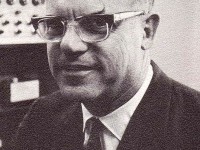
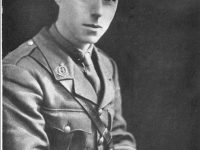
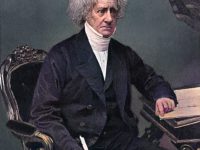
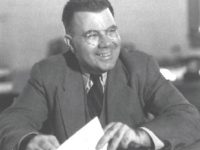

Science and Sanity changed my life, I was fortunate enough to catch a Jacque Fresco documentary where he recommended this book. Great article, thanks for sharing.